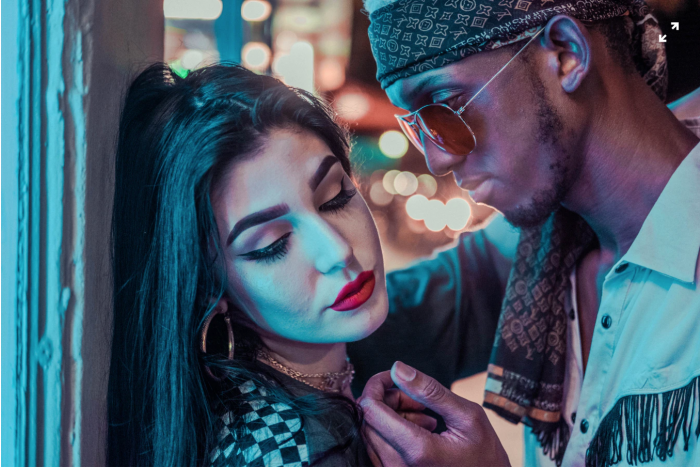Dear securely attached person, you might not be aware of what a great gift you have.
Nowadays loving is a skill—a much needed one—but expressing love openly and being fully receptive to it is an even greater one that only a select few of us have.
In romantic entanglements, we either get too clingy, to the point that we suffocate our partner. Or we shut down emotionally, making the partner feel neglected and unloved. And often, we may switch between these polarities back and forth—confusing and hurting not only the person we love, but ourselves as well.
But I’m not interested in explaining attachment theory and boring you with details.
I would just like a moment to open up to you about my emotional struggle that may be foreign to you. I hope my opening up will help you gain more understanding about people like me—and if not now, then maybe one day when someone like me comes along and catches your eye, but you can’t figure them out.
This isn’t easy to do, and transparency is something we work on—many of us hide in shame because we don’t know how to relationship well. But what I would like you to understand is this:
The emotional landscape of each person is different, and when a group of people come together as a family, they create a complex continent with its own relief, climate, and soil. All of these three elements vary in their intensity, nutrition, and possibility for healthy growth.
Expecting a juicy pomegranate to grow in the Siberian tundra is just as unreal as a pasque flower in the African deserts. Following the same analogy, expecting an emotionally healthy person to grow from an unhealthy family environment is a high expectation.
Yes, there are exceptions to all rules—and yes, we get to choose when we walk the path of healing. But this is by no means a short path for a wounded person: the amount of time, patience, self-discipline, and pain that’s needed to overcome our own issues isn’t a small one.
Imagine that the only way you knew how to function turned out to be not only unfulfilling, but also unhealthy—and the only way to improve your life was to completely reprogram your thinking and learn even the most basic things all over again. And here’s the real bummer: you’re not a small child anymore, but an adult in your mid-20s. How would you feel? Shocked? Unbelieving? Simply lost?
There are only two persons from my social circle whom I classify as “securely attached” with certainty, one male and one female. I’ve known both since high school. We’ve been through a lot and I have witnessed plenty of their loves and heartbreaks.
What I’ve always admired about my female friend is that she never strayed from her attachment style, despite all her suffering in relationships. On the other hand, my male friend had to do a lot of inner work in order to relate in a healthy, securely attached way.
Having a good connection with both of them, I actively practice transparency within these friendships and laying down my guard still isn’t the easiest thing for me to do. There are two specific instances I would like to share with you.
The first happened with my female friend. After our second cappuccino of the night, we came upon the topic of our relationships. Of course, she wanted to know how far my partner and I have come and how things were going between us. To her, it all sounded too slow, too demanding, or simply like an effort in vain. You should call it quits, she has said so many times now, unaware of what’s truly going on inside our relationship.
Fear of emotional intimacy may be an abstract concept for the securely attached. Typically, the securely attached need no shield and are able to wear their hearts on the sleeve wherever they are and regardless of whom they’re surrounded with.
And to all securely attached people, I envy you for this. Especially when you respectfully reinforce your boundaries or openly express your affection without fear of rejection. Like a small child, I’d like to say, I want to have what you have.
Keeping these thoughts aside, I tried to explain to my friend about my lifelong fear of emotional intimacy—which has been a constant companion. My partner is the same way. We work on our issues both individually and together, being there for each other and holding space when necessary.
After my lengthy explanation, one corner of her lips went briefly upward.
“If the love is true and the emotions are real, there’s no room for fear of any sort.”
Hearing that statement from a usually open-minded and accepting person felt like a cold shower on an icy night.
A black and white worldview isn’t a trait I’d ever give her, but in this case, I could not move her away from it. There wasn’t much I could do except to drop the topic and keep my opinion to myself.
In my reality, real love doesn’t “conquer all” like romantic novels and movies have taught us it does. In fact, real love requires a lot of inner work and personal development in order to keep it healthy and lasting.
To someone who’s always been secure, this may not be something that’s easily understood.
In the second instance, I came clean to my male friend one evening at our favorite cafe and told him honestly about my fears and relational challenges. He was mainly silent during my speech, only asking for clarification here and there, taking care to not interrupt me too much.
When I was done, he sighed and said, “I’ve known you for so long, and let me tell you one thing to think about: Was it really you, or the environment? Was it really you, or the wrong people surrounding you?”
This caused me to think. I know it was my family, but I know it was also my childish helplessness—I learned to deal with feelings by swallowing them down, by ignoring them, by shutting them off. The world had no time for my tiny frustrations, joys, angers, or affections and at one point, I truly started to believe in the validity of all this.
This may not sound familiar to my securely attached friends, so if this is you, please don’t react too fast. If there is any sense of judgment, dismissal, or rejection coming up, please ask me questions before labeling people like me as damaged or unloveable. Non-securely attached people like me do have our own subtle ways of showing our affection—and when you’re attentive, you’ll catch on to them quite fast.
We’re not that hard to read when you keep your hearts open for us.
Psychologists say we’re either in our open states or in our protective states. While securely attached folks tend to identify more with the first, we remain in the latter.
Those of us trying to heal are pushing the curtains aside to let some light in, hoping to see that, in fact, the world isn’t as scary as it was before. Instead of believing we’re damaged, battered, and beyond hope, we’re opening up to ourselves as a work in progress.
Trust me when I say it took a lot of courage for me to finally step out and open up to connect with you on an authentic level. Communication can bring us closer, allowing us to meet halfway. So here I am, waiting for all you have to ask or say, with the hopes of one day being able to share your gift too.
Wish me, and everyone else on this path, a lot of luck.











Read 1 comment and reply